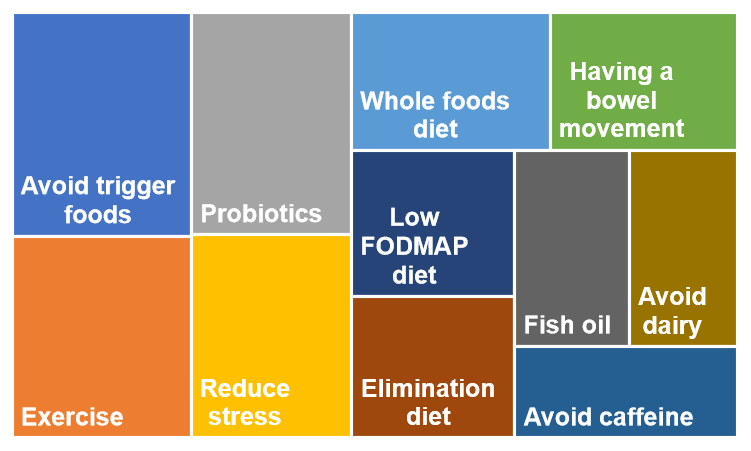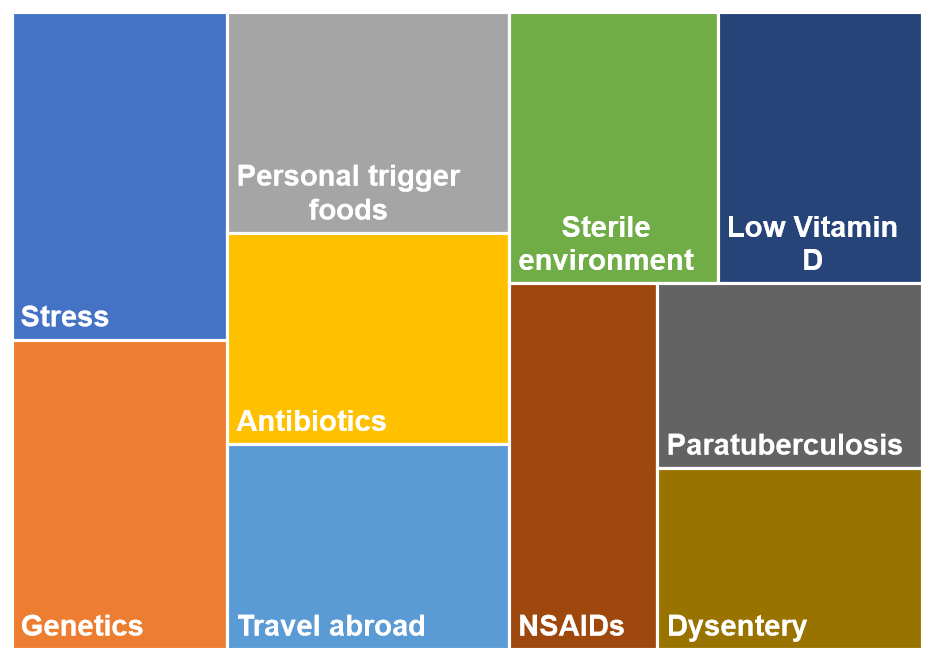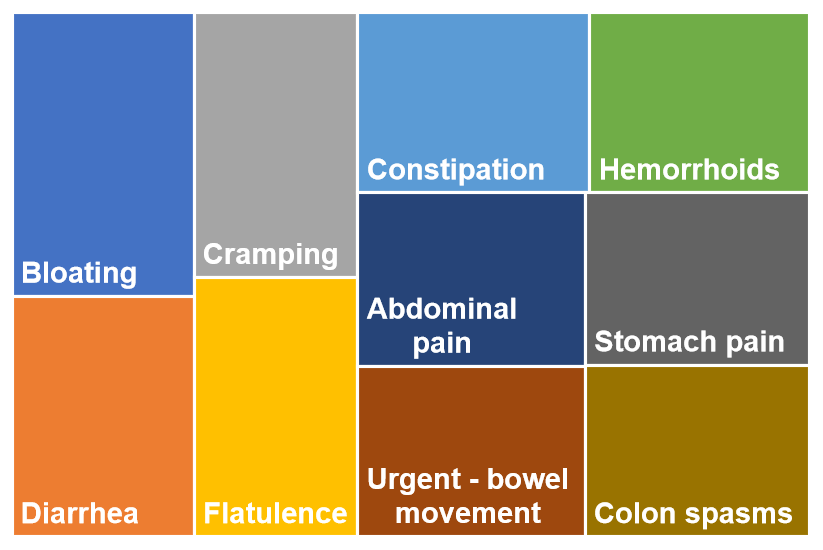
The chart below represents the top 10 symptoms for IBS. The box sizes in the chart represent the relative popularity based on votes. To see the full list, check out the Candor Health…
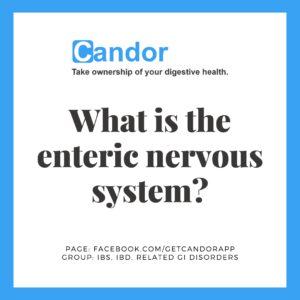
A major scientific breakthrough in understanding the interaction of the nervous system with the digestive system occurred with the discovery of the so-called enteric nervous system (ENS) in the middle of the 19th…
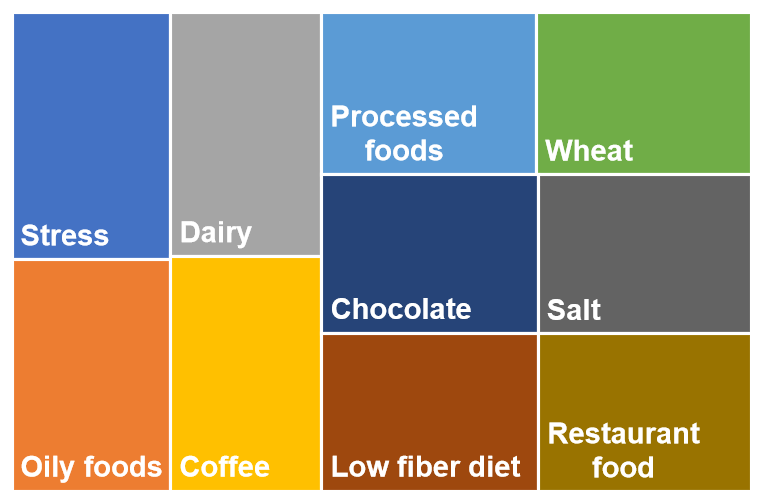
The chart below represents the top 10 causes or triggers for IBS. The box sizes in the chart represent the relative popularity based on votes. To see the full list, check out the…
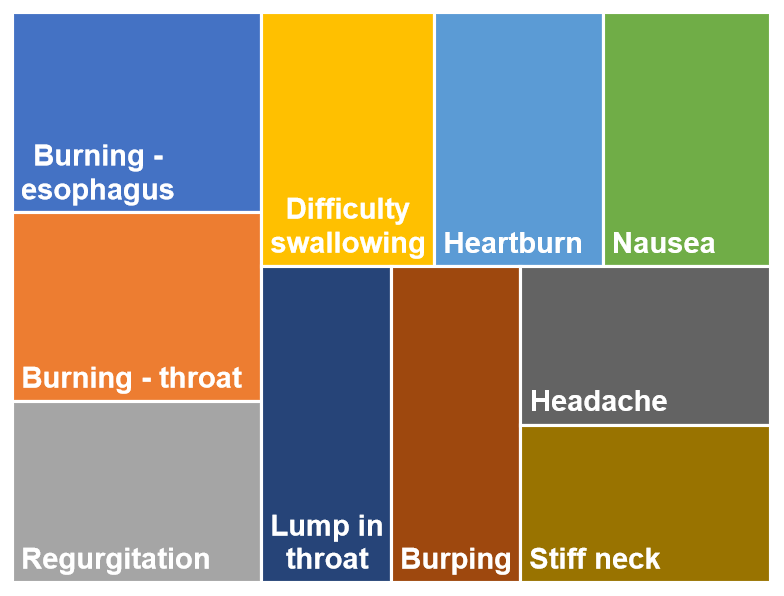
The chart below represents the top 10 symptoms for GERD. The box sizes in the chart represent the relative popularity based on votes. To see the full list, check out the Candor Health…
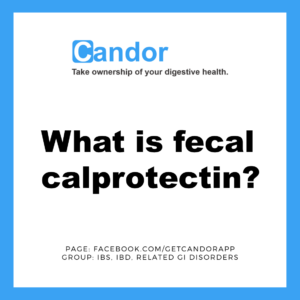
Fecal calprotectin is a biochemical measurement of the protein calprotectin in the stool. Calprotectin is a calcium- and zinc-binding protein of the S-100 protein family which is mainly found within neutrophils and throughout…
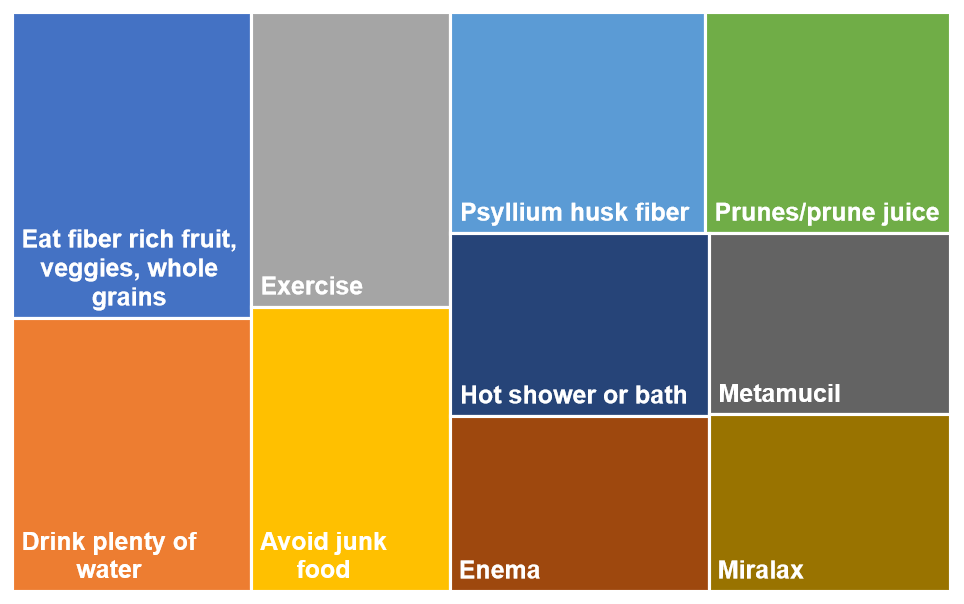
The chart below represents the top 10 treatments for constipation. The box sizes in the chart represent the relative popularity based on votes. To see the full list, check out the Candor Health…
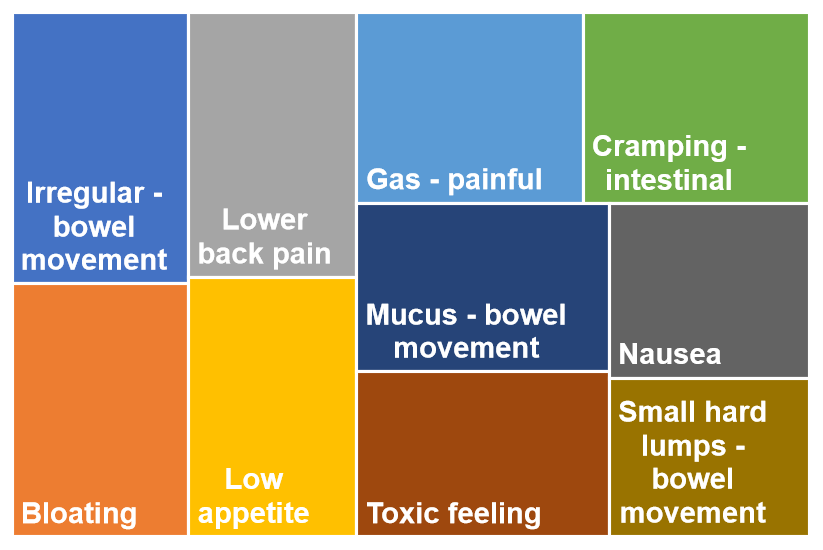
The chart below represents the top 10 symptoms for constipation. The box sizes in the chart represent the relative popularity based on votes. To see the full list, check out the Candor Health…
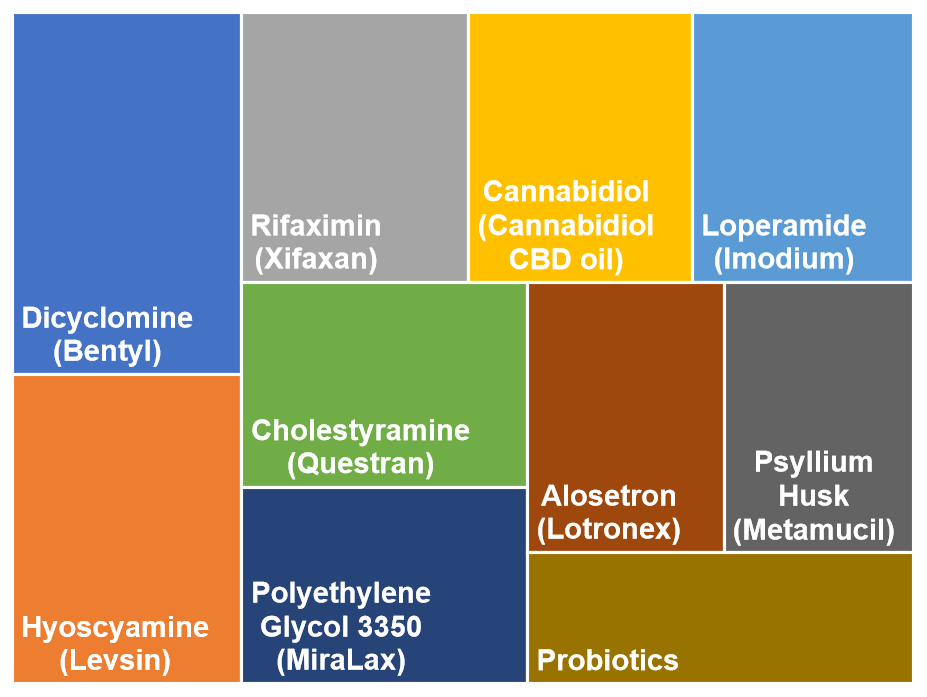
The chart below represents the top 10 medications for IBS. The box sizes in the chart represent the relative popularity based on votes. To see the full list, check out the Candor Health…
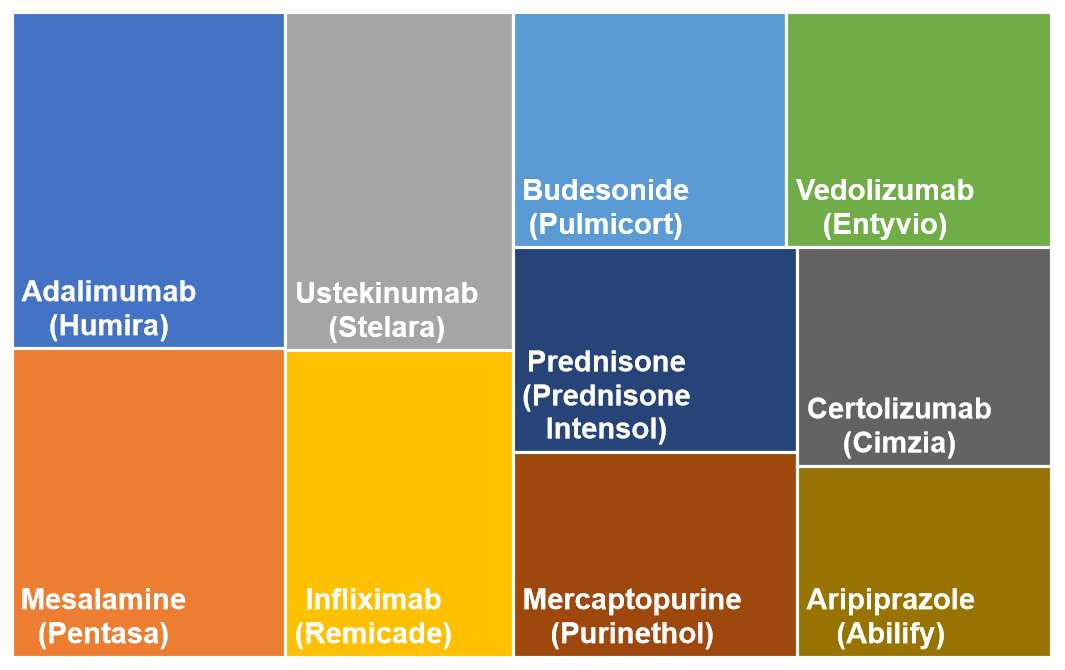
The chart below represents the top 10 medications for Crohn’s. The box sizes in the chart represent the relative popularity based on votes. To see the full list, check out the Candor Health…
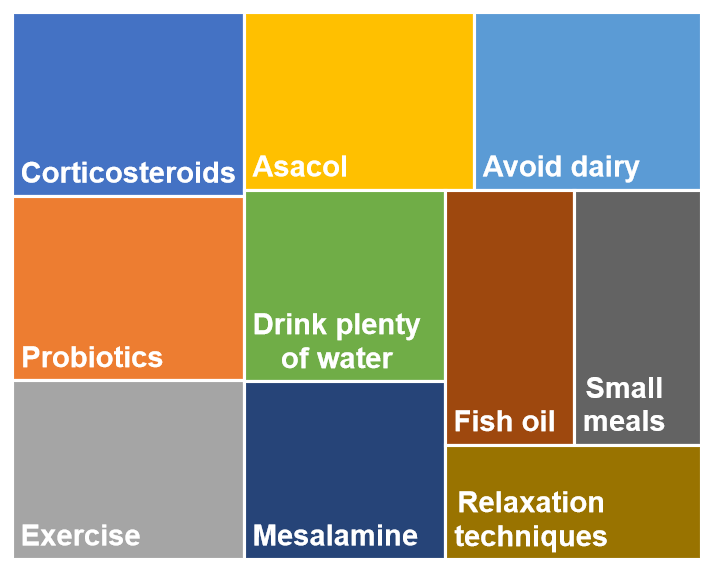
The chart below represents the top 10 treatments for Ulcerative Colitis. The box sizes in the chart represent the relative popularity based on votes. To see the full list, check out the Candor…
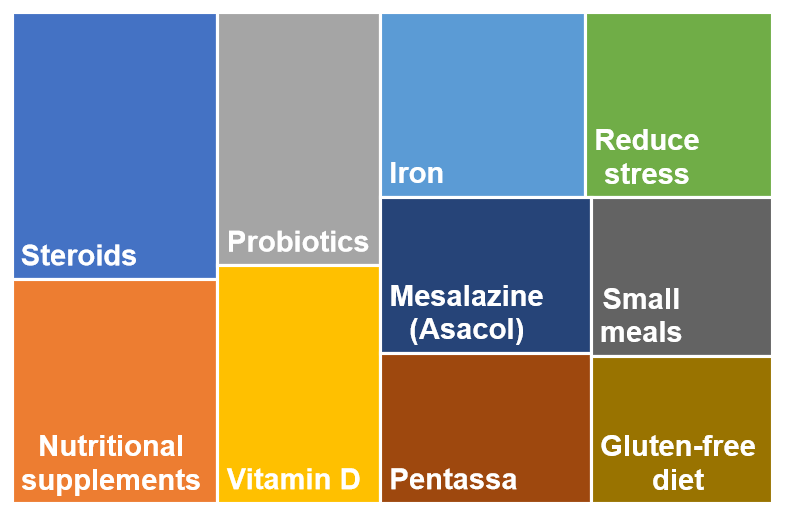
The chart below represents the top 10 cited treatments for Crohn’s. The box sizes in the chart represent the relative popularity based on votes. To see the full list, check out the Candor…
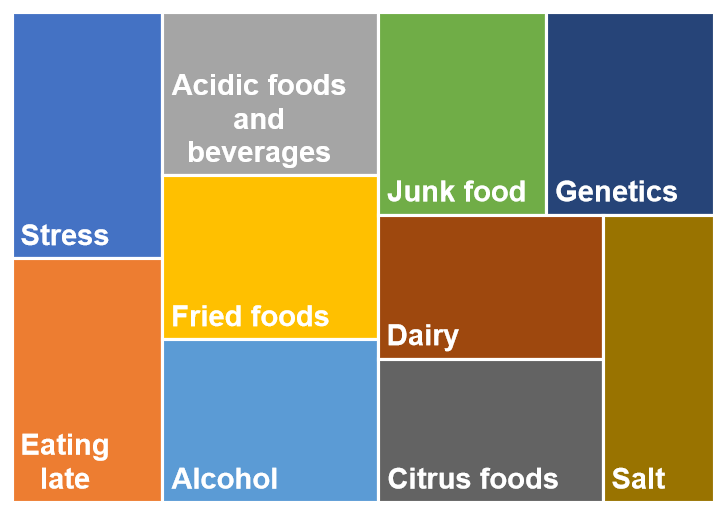
The chart below represents the top 10 causes or triggers for IBS. The box sizes in the chart represent the relative popularity based on votes. To see the full list, check out the…
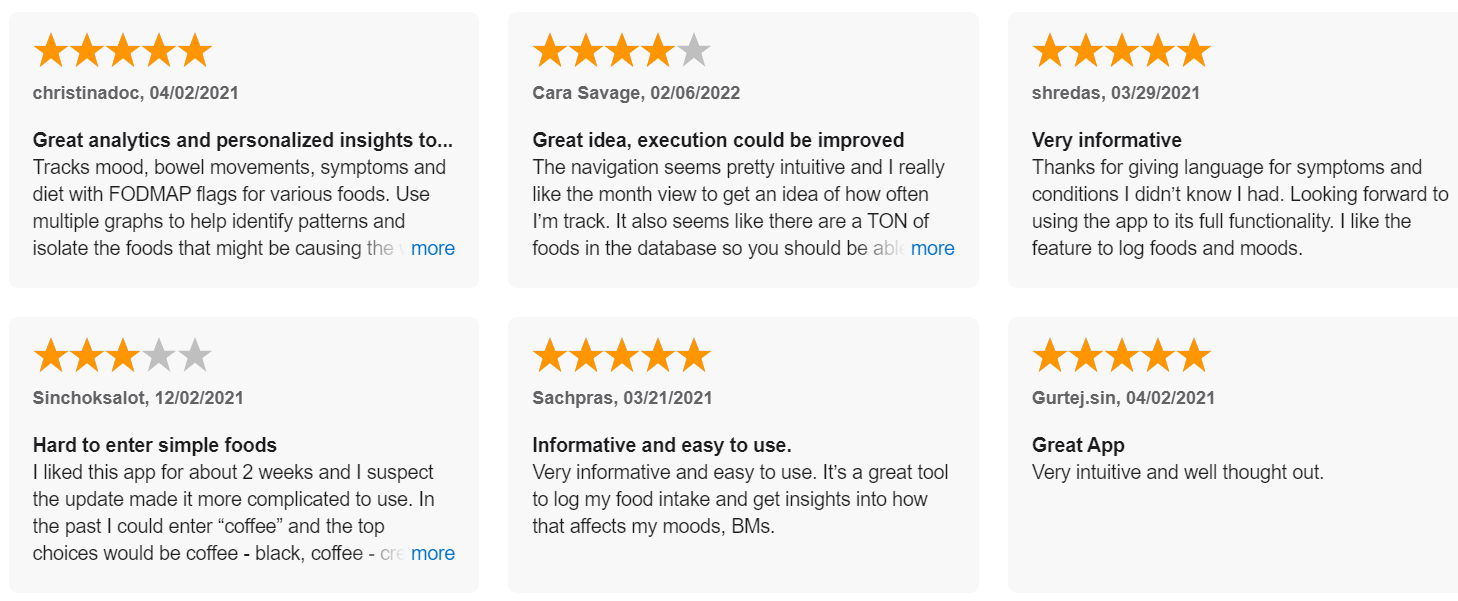
Get insights into your GI symptoms. Take control of your digestive health. View ranked lists on most commonly cited treatments, symptoms and triggers. For those in the Candor community following a FODMAP diet,…
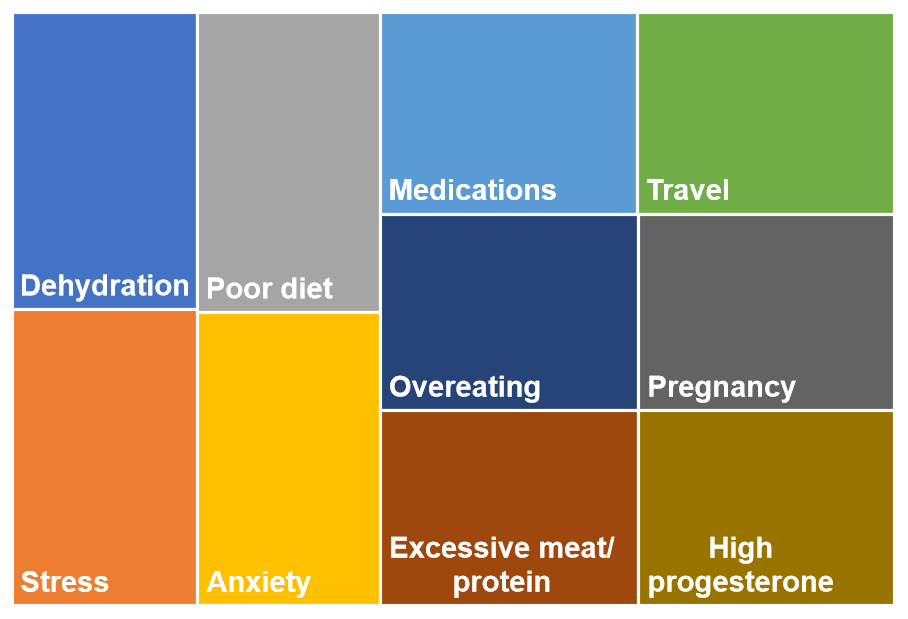
The chart below represents the top 10 causes or treatments for constipation. The box sizes in the chart represent the relative popularity based on votes. To see the full list, check out the…

